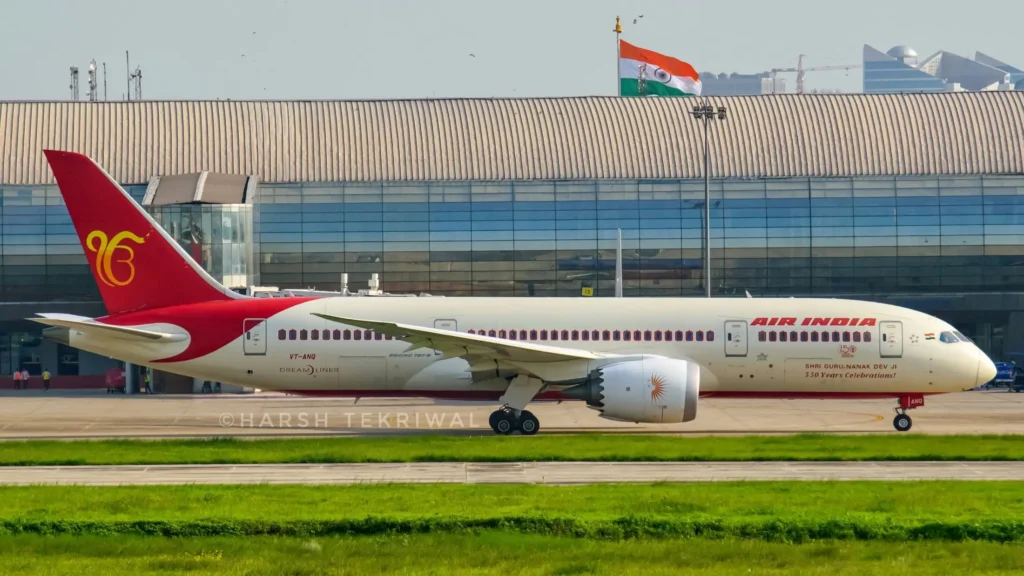GURUGRAM- Air India (AI) has introduced a new policy for examining fatigue reports from pilots and cabin crew, igniting a debate about its potential impact on self-reporting practices.
The policy establishes a committee to review fatigue calls, raising concerns that crew members might hesitate to report fatigue due to fear of retribution.

Air India New Fatigue Policy
Under the new guidelines, all fatigue reports submitted by pilots will initially be marked as such in the airline’s system. However, a subsequent review process involving the flight operations department, cabin crew data, and the airline’s medical department will scrutinize these reports.
The policy stipulates that if a fatigue report is deemed unsubstantiated after review, it will be reclassified as sick leave on the crew portal. This clause has sparked particular concern among industry observers and crew members.
A senior airline executive responsible for flight operations defended the policy, arguing that it serves to prevent abuse of the no-questions-asked fatigue policy previously in place. The executive emphasized the need to distinguish between genuine fatigue resulting from airline operations and fatigue stemming from personal reasons.
Critics of the new policy argue that it could create a chilling effect on self-reporting. They contend that crew members, fearing potential negative consequences, might choose not to report fatigue even when legitimately experiencing it. This reluctance could potentially compromise flight safety, as fatigued crew members might continue to work when they are not fit to do so.
Proponents of the policy, however, maintain that it introduces necessary accountability into the fatigue reporting system. They argue that without such measures, some crew members might exploit the system, leading to unnecessary flight disruptions and operational inefficiencies.
Replication IndiGo’s Policy
Air India’s new fatigue reporting policy mirrors industry leader IndiGo’s (6E) approach, marking all fatigue reports initially as sick leave. The policy involves a subsequent evaluation by flight operations teams to verify the reports’ authenticity, with genuine cases resulting in the reinstatement of sick leave credits.
This policy shift comes in response to a significant increase in fatigue reports at Air India in recent months. Sources reveal that many of these reports stemmed from personal issues rather than organizational factors, prompting the airline to implement a more stringent review process.
An Air India spokesperson defended the new protocol, stating it aligns with global airline practices and complies with regulations while maintaining a non-punitive stance. The airline emphasizes its continued use of scientific tools like the Jeppesen and Boeing Alertness Model to prevent potentially fatiguing rosters.
Industry insiders argue that unchecked fatigue policies can lead to system abuse, potentially overshadowing genuine cases and hindering necessary schedule changes. They highlight the importance of identifying recurring issues with specific flight schedules to trigger systemic improvements.
The International Civil Aviation Organisation (ICAO), a UN agency overseeing aviation safety, advocates for crew self-reporting of fatigue. ICAO guidelines recommend regular analysis of fatigue reports by airlines, with appropriate feedback provided to individuals and groups about actions taken or explanations for inaction.
Transparency is Key
Senior crew members told ET that they advocate for transparent data analysis to develop a comprehensive fatigue risk management policy, potentially eliminating fatigue-inducing flight patterns.
Air India Express has already implemented changes, providing overnight rest for pilots on multiple late-night Gulf flights, and replacing quick turnarounds. This move demonstrates the potential for policy-driven improvements in crew scheduling.
However, Air India pilots have previously raised concerns about extended waiting periods at airports without adequate rest facilities contributing to fatigue. One pilot questions whether the new committee will consider such situations as legitimate fatigue or personal issues.
The success of these policies hinges on the involvement of the Directorate General of Civil Aviation (DGCA). Amit Singh of the Safety Matters Foundation emphasizes the need for unbiased assessment, suggesting pilot representation in the evaluation process. He notes the DGCA’s current lack of comprehensive fatigue data.
The DGCA has yet to set an implementation date for new pilot rest rules, which would require airlines to submit quarterly fatigue reports. These rules face resistance from airlines, citing potential flight cancellations during peak travel seasons.
Stay tuned with us. Further, follow us on social media for the latest updates.
Join us on Telegram Group for the Latest Aviation Updates. Subsequently, follow us on Google News.
The post Air India Implements New Fatigue Policy for Pilots and Cabin Crew, Faces Backlash appeared first on Aviation A2Z.
